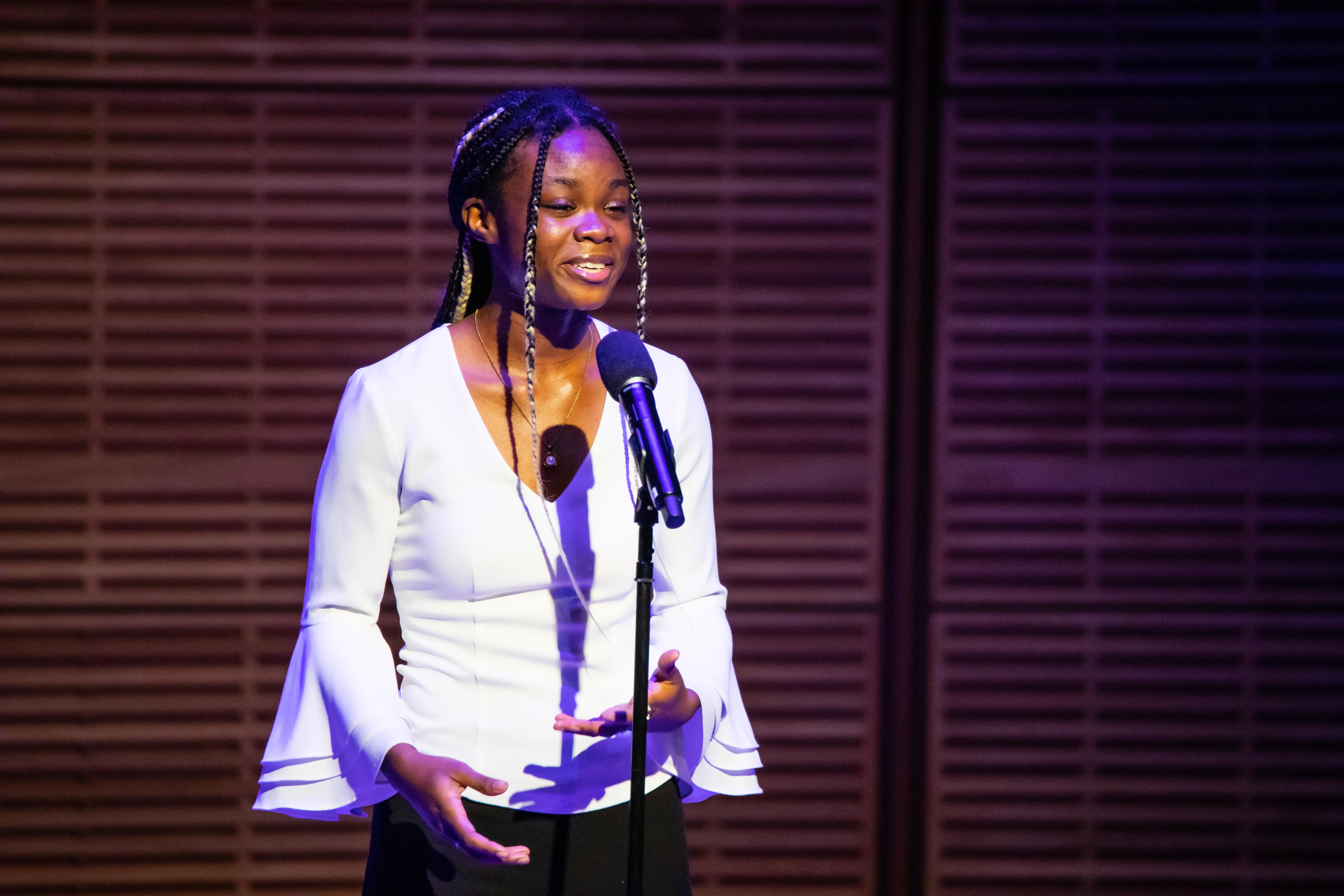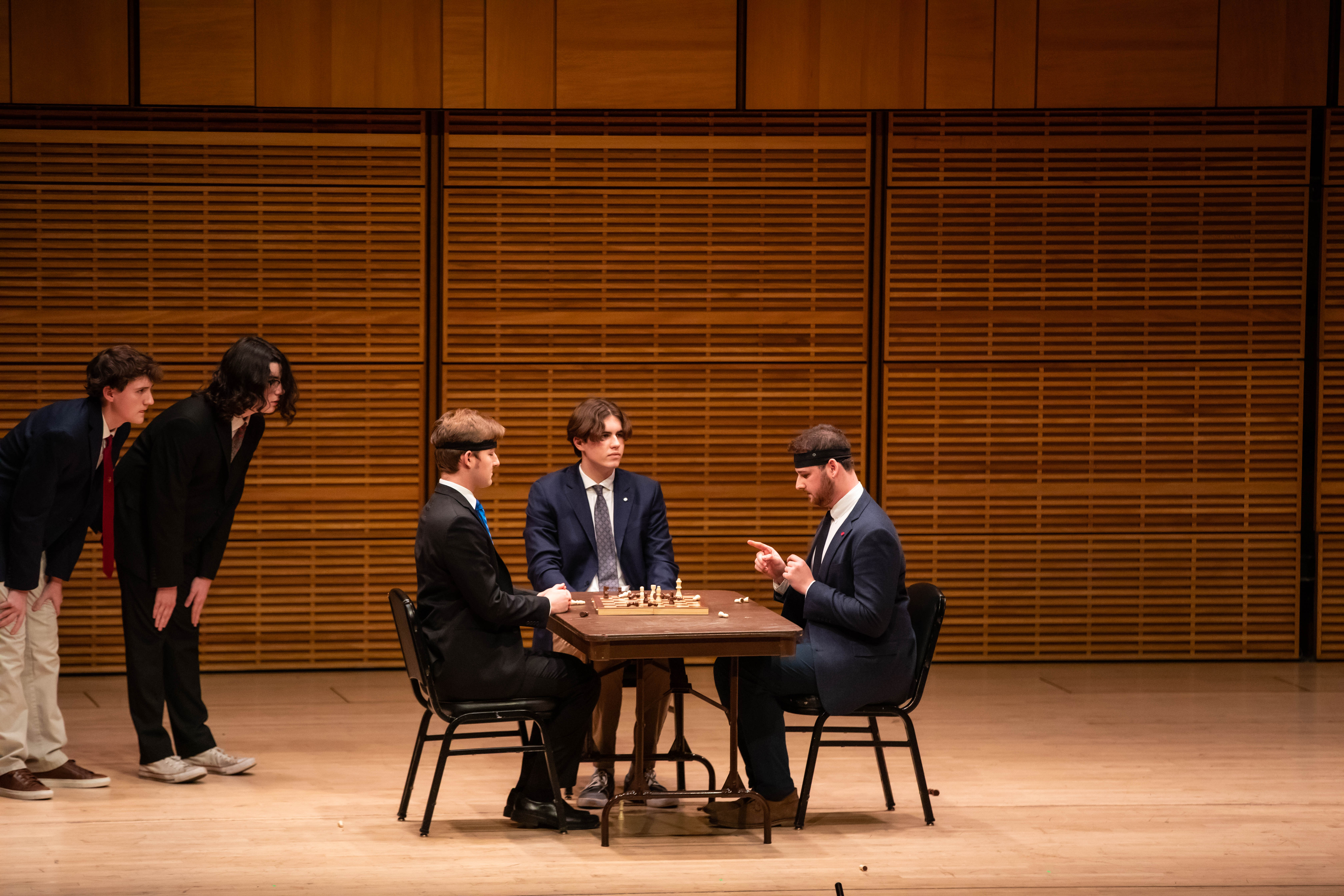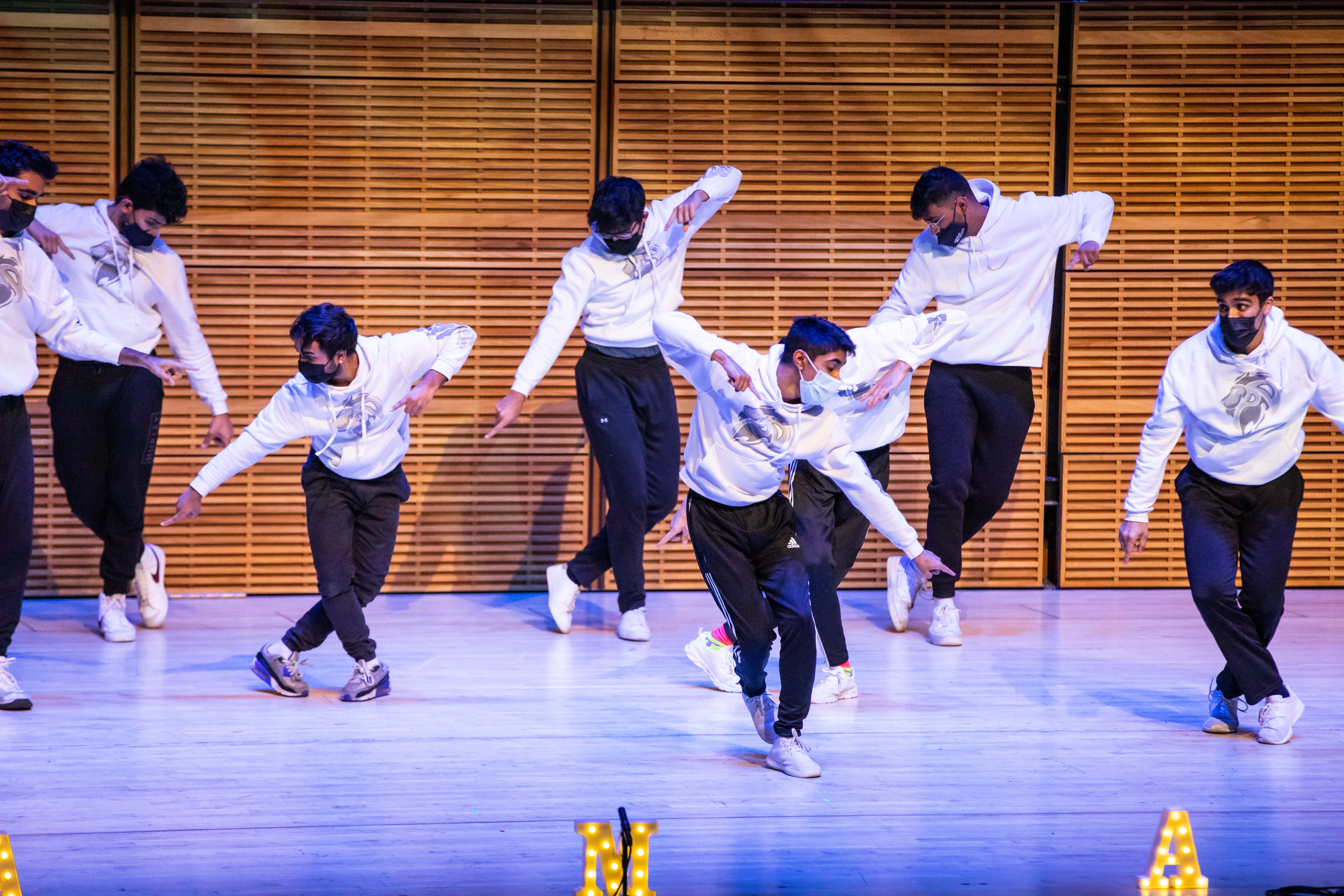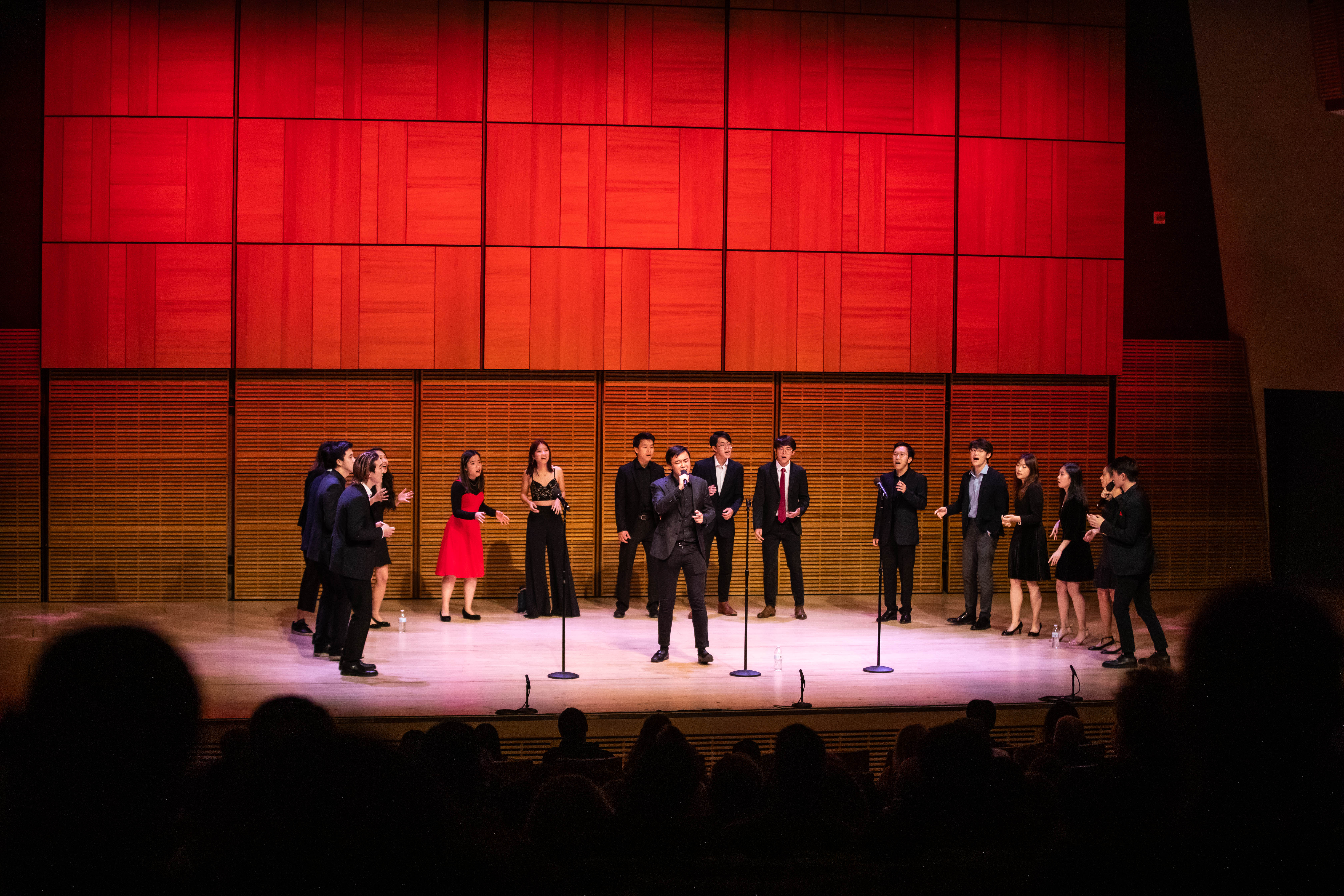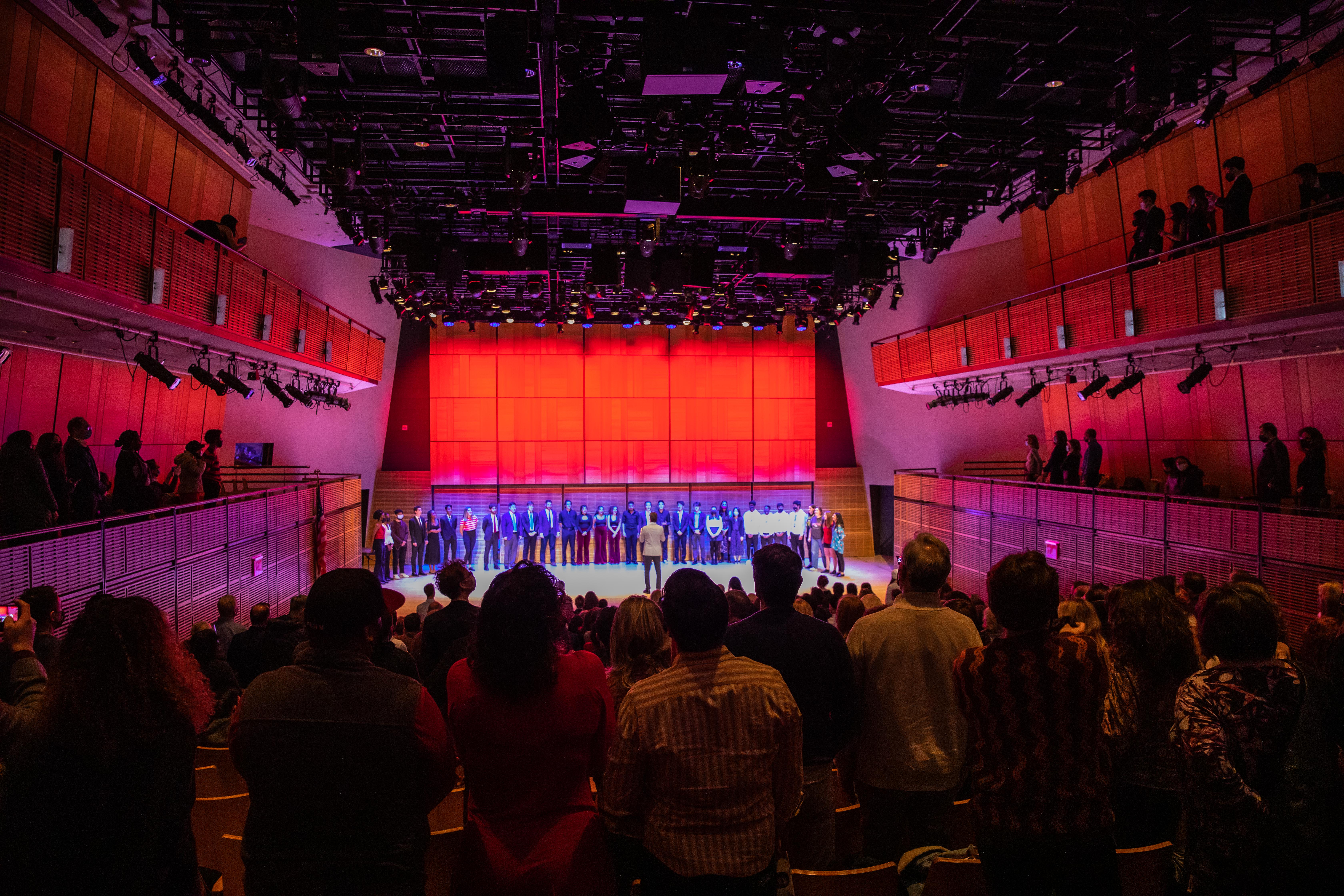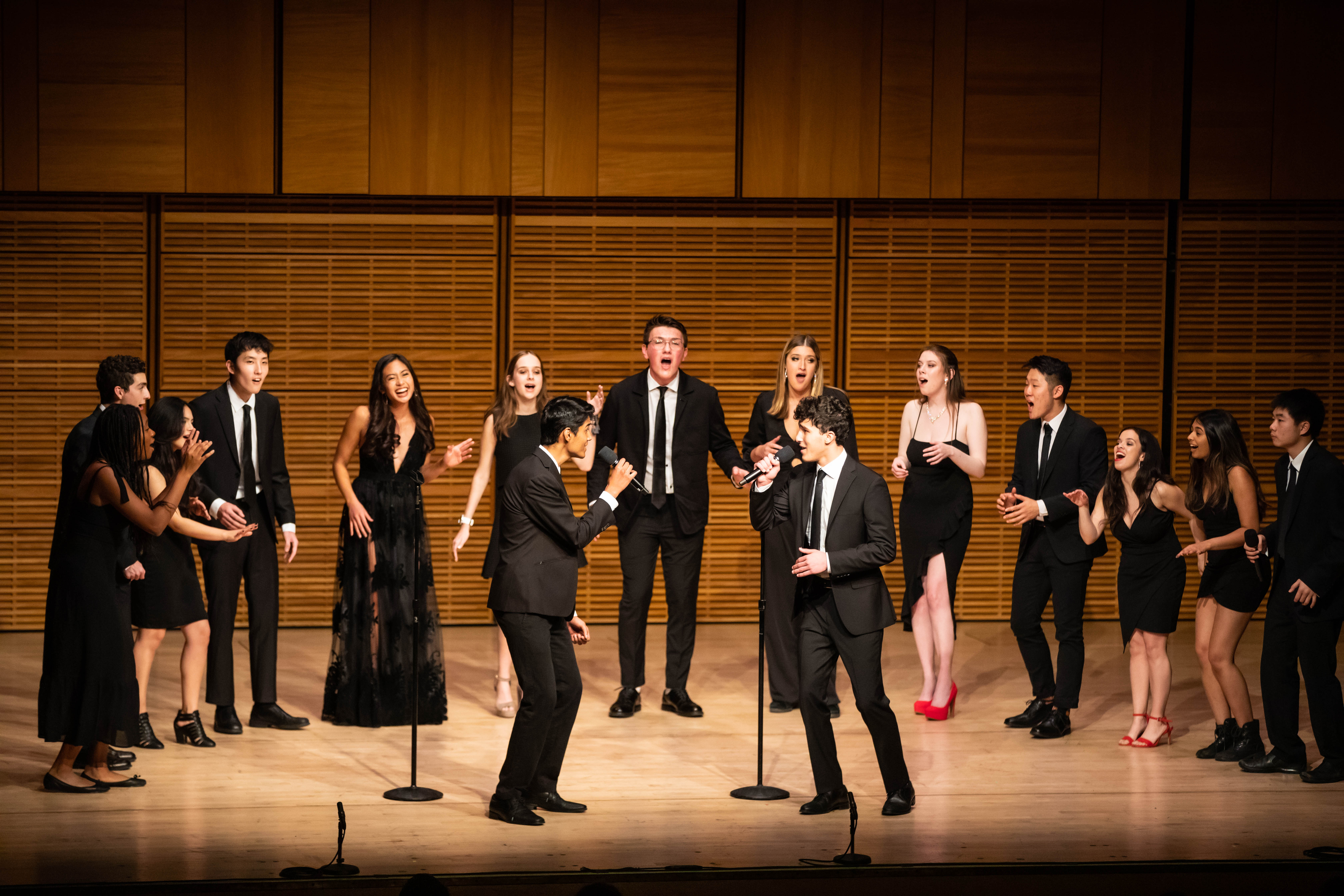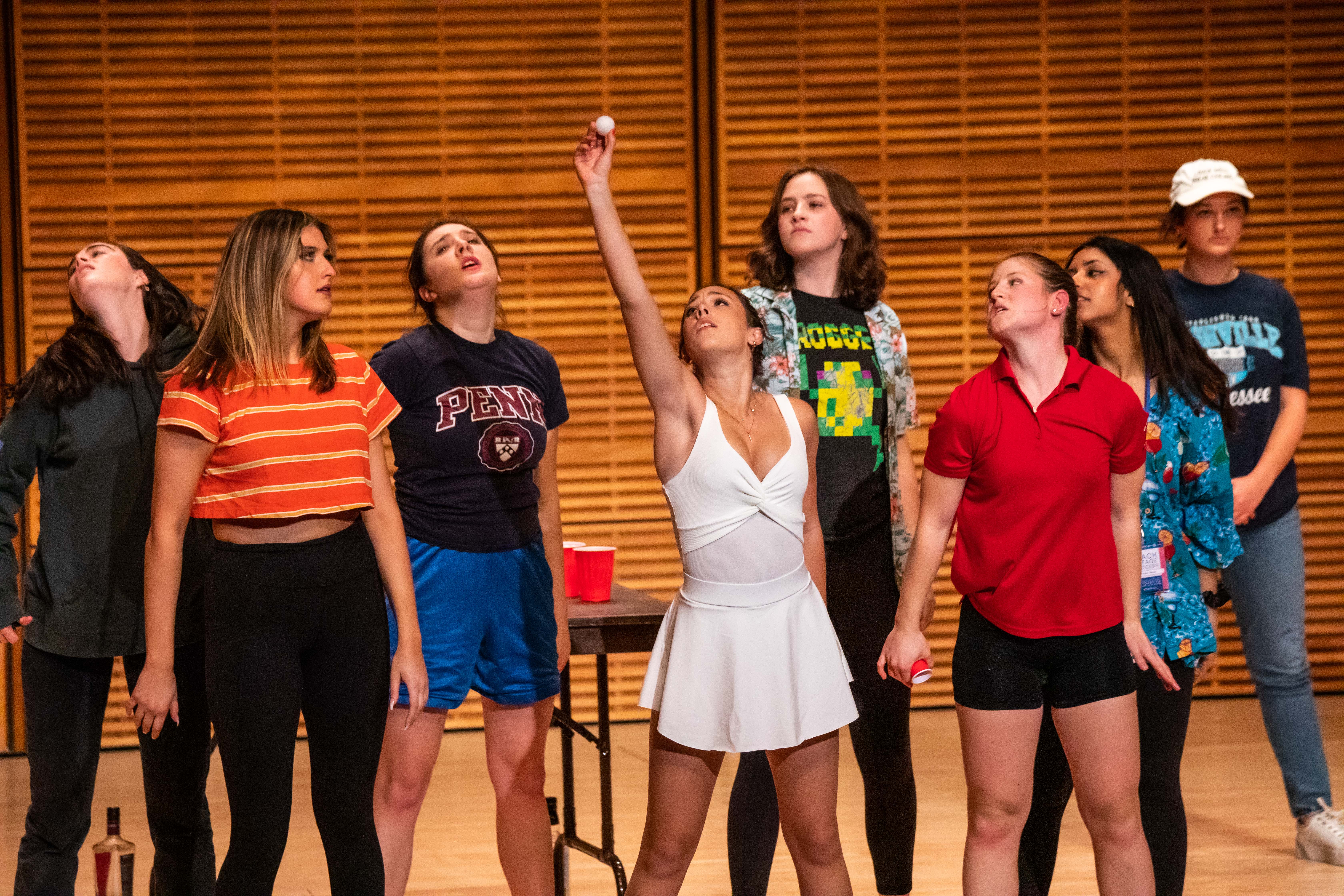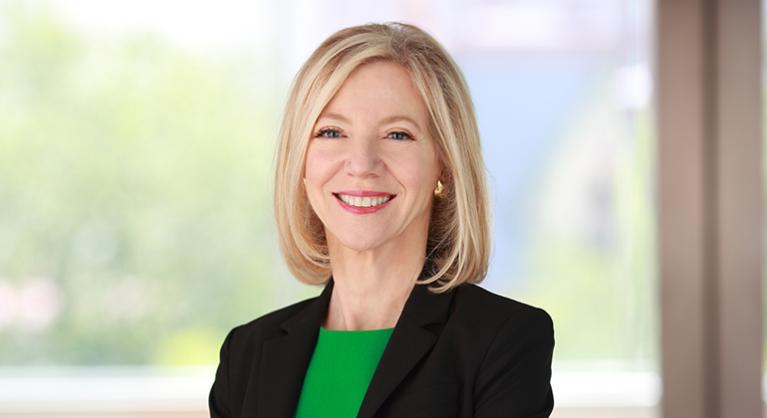Who, What, Why: Laurie McCall, director of the Platt Student Performing Arts House
Laurie McCall leads the staff at the Platt Student Performing Arts House, which supports Penn’s 70-plus groups that stage more than 100 comedy, spoken word, dance, theater, voice, and music events each year.
Who
Laurie McCall is the director of the Platt Student Performing Arts House, as well as staff coordinator of the PennQuest Pre-Orientation Program. She has been at with University Life since 1992, starting as assistant director of New Student Orientation. Since 2007, she has been at the Platt House, which opened the previous year with support from Penn alums Marc and Julie Platt, first as associate director and since 2013 as director. Her undergraduate degree is in education and her graduate degree in communication.
What
McCall leads the staff at the Platt House, which supports Penn’s 70-plus groups that stage more than 100 comedy, spoken word, dance, theater, voice, and music events each year, involving more than 1,400 undergraduates. The Platt House also provides trainings, workshops, masterclasses, and career mentorship, connecting students with alumni in the field. And it facilitates youth arts mentorship, community outreach, and engagement with the regional arts industry.
“We provide a scaffold of support with resources, care, and advice to our students who are in performing arts groups who want to perform,” McCall says. “But we are also advocates to make sure that they have what they need to perform on campus.”
A big part of her job is helping to solve problems. A continual challenge is finding and securing and allocating space for rehearsals and performances in buildings throughout the campus. She is very much looking forward to the 2027 opening of the new student performing arts center at 33rd and Chestnut streets; construction started in September. The Platt House team will manage the programming in the new performance center.
Another role is to support the student Performing Arts Council (PAC), which governs the 45 groups that have priority for show spaces and Student Activities Council funding. McCall and her team of five also are in contact with the 35-some independent groups and help when needed. Two manage the PAC Shop, which helps students with set-building and technical needs.
And part of what McCall does is answer the call when the students are trying to manage a challenge and ask for direction. “They don’t always know how to handle conflicts within their groups, and we are helping them do that,” McCall says. “I focus on trying to make sure that they understand what it means to be inclusive.”
Also, she encourages students to enjoy their time in performing arts, to keep their passion, to try not to get stressed out, and to focus on the friendships and the fun.
McCall was a stage manager when she was in school: “I’m still stage-managing in the way that you’re getting everyone what they need in the time that they need it.” She also manages the PennQuest Pre-Orientation experience, selecting and training Penn student volunteers who lead a group of 130 incoming first-year students on a camping and hiking trip in the summer.
“I’m a person who has been managing student group activities my whole life,” she says.
Why
Student performing arts are woven into the fabric of the University, included in every formal occasion and other events, she says. And the experiences for the students involved form lasting impressions and friendships, McCall says, and she is proud to play a part.
“I would like every student and every student club to have an advisor who they can come to with their issues. I know the pressure that students have academically and timewise, and I don’t want their extracurricular life to be part of that. Extracurriculars should be where they can release their stress,” McCall says. “My goal is to improve their quality of life, especially through the arts, which encompasses so many life lessons and touches so many people. I want to be able to help them in any way I can.”
A calendar of the dozens of student performing arts productions scheduled for this fall is available on the Platt House website.
On stage at Carnegie Hall
Seven Penn student performing arts groups took the stage at Carnegie Hall in New York City before a near-sellout crowd in the third-annual “Toast to Dear Old Penn” showcase.
The Dec. 10 evening event featured more than 100 students in Dischord and Penn Yo a capella, Onda Latina and Penn Dhamaka dance, Bloomers and Mask and Wig comedy troupes, and the spoken-word Excelano Project. They performed for more than two hours before an audience of about 400 Penn alumni, students, and staff, along with family and friends.
“The vibe was extremely positive and spirits were high. The atmosphere had a tangible electricity to it created by the enthusiasm of the audience and the performers,” says Laurie McCall, director of Penn’s Platt Student Performing Arts House. “Everyone seemed to enjoy the show and being together at a Penn event.”
Co-sponsor Penn Live Arts made possible a virtual livestream that was recorded and is now available for viewing.
There were strict COVID-19 protocols, and no receptions or parties. “It was just the performance,” McCall says.
The performers were required to submit vaccination cards, have a negative COVID-19 test 72 hours prior, and wear masks except when on stage. Audience members had to show vaccination cards with identification and wear masks.
“We had to coordinate with the students to make sure we met Carnegie Hall’s requirements to get all PCR COVID tests and vaccination cards submitted at the correct time,” McCall says. “Thankfully, Penn is set up to manage COVID protocols effectively.”
Penn announces plans for new student performing arts center
Penn President Amy Gutmann today announced that the University has begun the planning process to build a new student performing arts center at 33rd Street and Woodland Walk, adjacent to Lauder and Hill College Houses and proximate to King’s Court English College House. The University has issued a request for a proposal for a feasibility study for the proposed $31-million, 36,000-square-foot center, a project which Gutmann said has been in high demand by the collective undergraduate student body.
Penn Glee Club becomes fully gender inclusive
Penn Glee Club becomes fully gender-inclusive after 159 years of all-male singers. In a merger with the Penn Sirens, the chorus will add soprano and alto voices and be open to singers of all genders.
The University of Pennsylvania Glee Club and the Penn Sirens have decided to merge their choral groups, meaning that for the first time since its founding 159 years ago the Glee Club will include singers of all genders and will perform repertoire for soprano and alto voices, in addition to tenor and bass, and for all four voice parts.
In the final step in a yearslong process to make the Glee Club fully gender-inclusive, currently active members voted unanimously Friday afternoon to approve an amendment to the Club’s constitution and by-laws to allow singers of all genders and all voice parts.
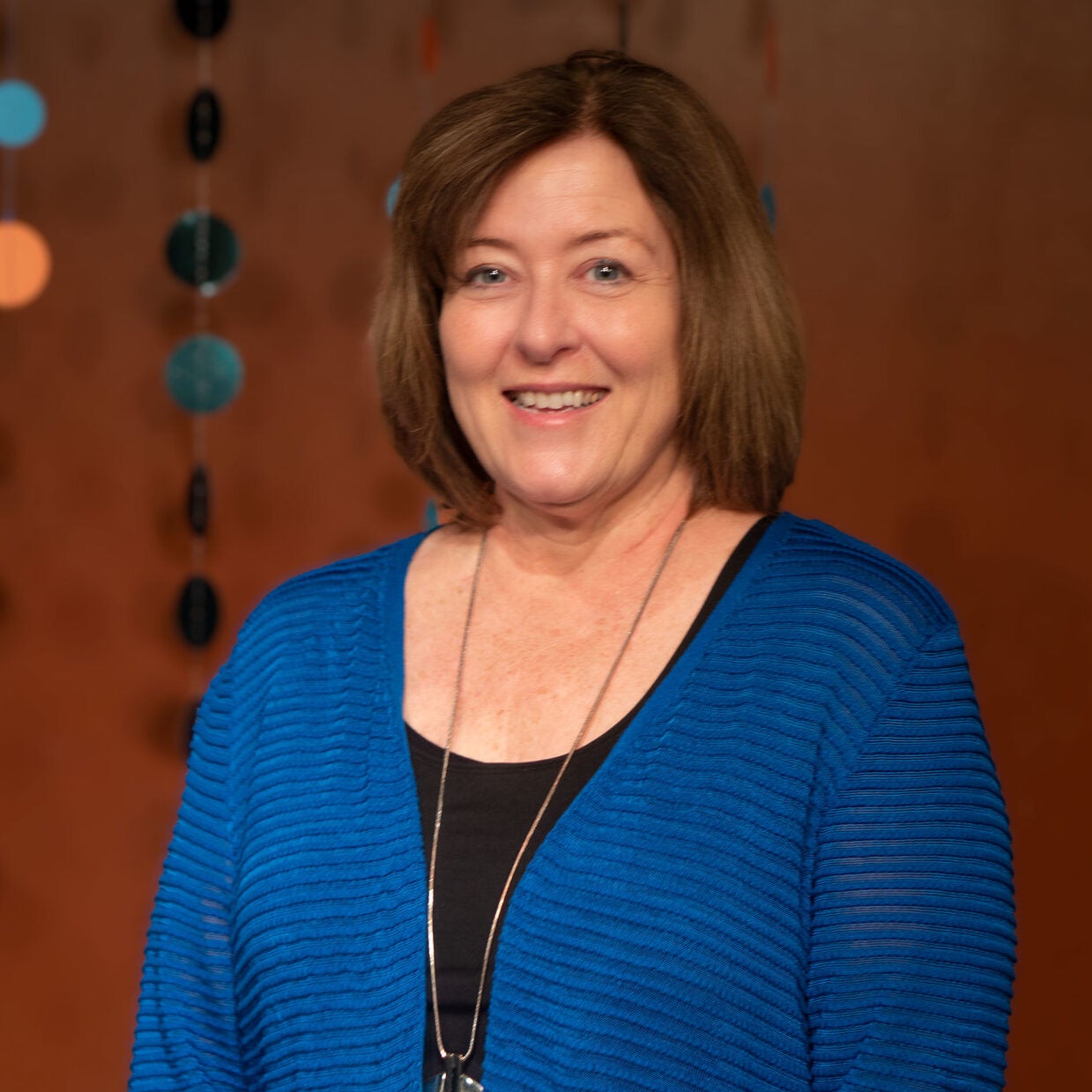
“It’s a milestone day for sure; we are all really excited. It’s quite the accomplishment for all of us. It’s incredible that it’s done. It’s one for the history books,” said senior Jake Milner, Glee Club president, minutes after the vote.
“This merger will provide amazing performance opportunities to all Penn students and creates a more inclusive performing arts community,” says junior Marina Dauer, Sirens President.
“The Penn Glee Club and Penn Sirens—two student groups near and dear to my heart who often perform at our most coveted celebrations on campus—have decided to merge, singing a most beautiful song of their commitment to gender inclusivity,” says President Amy Gutmann. “This change is historic, as the all-male choir component of Penn Glee Club is almost 160 years old. Both groups have exhibited enormous care, with the thoughtful direction of advisers and leaders at Penn, during the process of making this transformative shift, and I am proud to see where they’ve landed.”
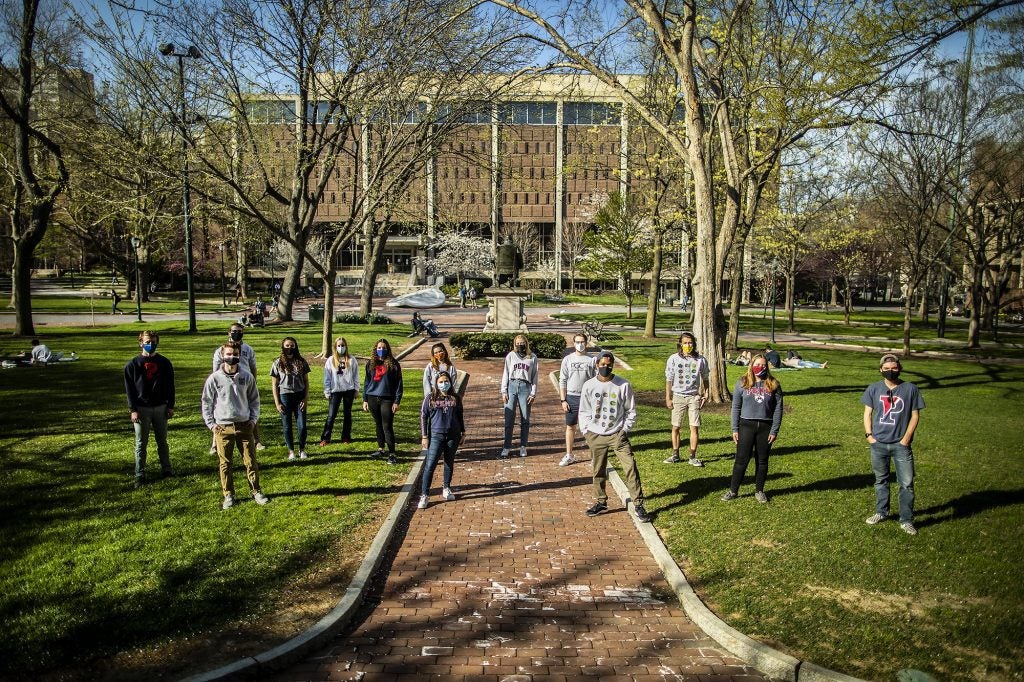
Performing Arts Council Executive Team Video
The students from the Platt Performing Arts Council Executive Team put together a video demonstrating the struggle the community has endured.

